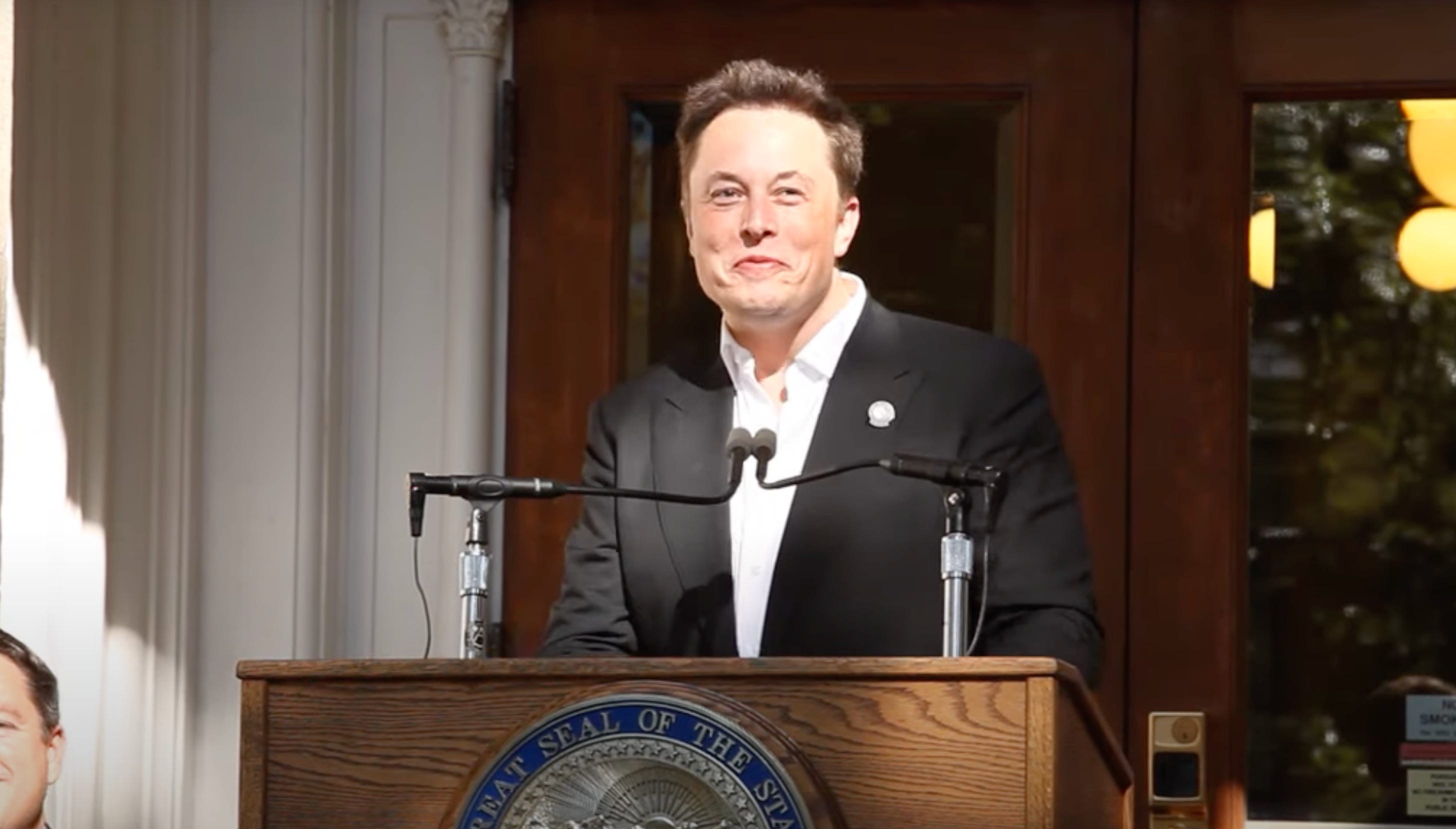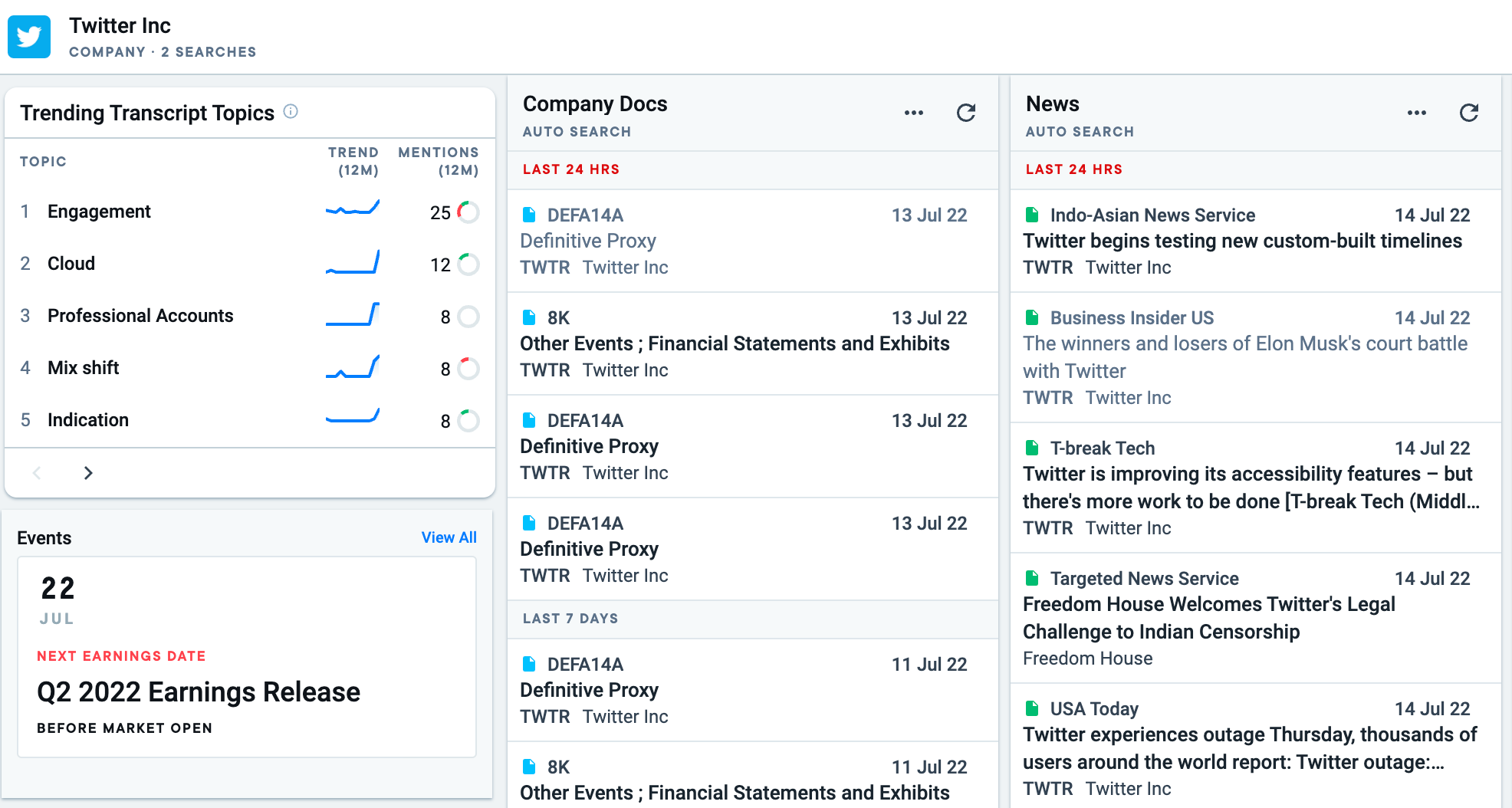“I Don't Think He's Screwed At All.” Musk Might Be In Better Shape Than You Think.
Elon Musk agreed to buy Twitter. Will the courts make him pay up?
 |
Elon Musk will probably pay Twitter a lot of money. He’s on the hook after signing a deal to buy it, throwing a tantrum, and trying to back out last week. And after reading Twitter’s powerhouse lawsuit, many observers now believe the Delaware courts will force him to buy Twitter for $44 billion, his initial offer price.
But a closer look at the legal process, with input from Delaware lawyers, indicates Musk might have more in his favor than the narrative suggests. He may still lose, or agree to a massive settlement, but a ruling that forces him to buy Twitter remains unlikely.
“I don't think he's screwed at all,’ said Morgan Ricks, a law professor at Vanderbilt University. “If it were a slam dunk case and the remedies were very clear and easily enforceable, then everyone would be buying Twitter at $52. Right now, it’s trading at $36.”
Given that Musk seems to have violated his contract, the crucial questions are now what the Delaware Court of Chancery will do about it, and how Twitter’s legal team will anticipate those actions. The court may order Musk to buy Twitter at the agreed-upon price — via a “specific performance” clause in the contract that forces it — but that’s an unusual step the court isn’t fond of taking.
“Specific performance, under Delaware law, is an extraordinary remedy,” said Robert Penza, a Delaware lawyer with decades of experience before the Chancery Court. “They would only do it if they're convinced there's not an adequate remedy at law, such as monetary damages.”
The court may be particularly hesitant to order Musk to close the deal because it understands he might not comply, a seemingly preposterous notion that somehow carries weight. Carolyn Berger, the court’s former vice-chancellor, said this outright on CNBC Wednesday. "The problem with specific performance,” she said, “especially with Elon Musk, is that it's unclear whether the order of the court would be obeyed."
The court could fine Musk for noncompliance daily, Berger said, but the fines would simply pile up on a ledger and might not result in any action. So, a desire for a quick resolution might push the court to rule in favor of Twitter, but only levy damages, which are capped at $1 billion.
The possibility of not getting $44 billion via a specific performance order will loom over Twitter’s case and likely push it to settle. The Delaware court’s Chancellor, Kathaleen McCormick, has forced mergers in the past, and has written that the court “has not hesitated to order specific performance.” But the risk of failing to get the specific performance order, and landing only $1 billion in damages, could make a settlement for more than $1 billion appealing for Twitter.
“Most smart lawyers, and most experienced lawyers, will not fall in love with their case, given that no case is a slam dunk,” said Francis Pileggi, a Delaware corporate lawyer. “I don't care who you are or what case it is. Every case has different shades and different nuances that make it less than a sure thing. So, statistically, 99% of all cases settle.”
To arrive at a settlement number it can accept, Twitter will contemplate the probability that it will get a specific performance ruling, up to $1 billion in damages, or lose outright. Then, when evaluating the damages, the company will likely factor the market’s poor performance this year into its calculations. “I don't think it's going to be easy to prove damages,” Pileggi said.
Musk doesn’t want this to go on forever either, and he might be willing to pay a premium above the $1 billion and be done with it. The two sides may also agree to a lower purchase price, shake hands, and complete the transaction. But the $10 billion settlement some predict seems fanciful.
There is plenty of pride and emotion in this case, and it would be foolish to underestimate it. Musk may decline to negotiate a settlement because he doesn’t feel bound by the law. Twitter may refuse to settle because it feels it must stick it to Musk — who’s routinely disparaged its executives — and see the process through for the sake of its shareholders. And the Delaware Chancery Court may feel its legitimacy is at stake, and therefore opt for specific performance to demonstrate the law means something.
But a settlement that merely inconveniences Musk remains the most likely outcome. And though Twitter — which made $5 billion last year — could use his money, it will likely be deflating for the company and its shareholders after everything it’s endured.
Journalists Get AlphaSense For Free (Sponsored)
If you’re a journalist trying to keep up on the latest business news, you can use the leading market intelligence software — AlphaSense — for free. AlphaSense can give you up-to-the-moment snapshots of companies you’re following, providing the latest legal documents and news, all on one screen. No more digging through company IR pages or learning about news from your competitors.
Get your free Alphasense license here. (Each request will go through an approval process before free access is provided.)
What Else I’m Reading
Elon Musk should be forced to buy Twitter. Tech hiring is slowing. Gen Z uses TikTok and Instagram for search, not Google. Amazon had its biggest Prime Day ever. How Three Arrows Capital blew up. Celsius filed for bankruptcy. Amazon gave Ring footage to cops without owner permission. The beauty of that space photo. How top NFL reporter Adam Schefter operates. Brittney Griner’s bad fortune. Crawdads author wanted for questioning in murder.
Number Of The Week
3,600
Bank of America analyst Savita Subramanian’s new target for the S&P 500 this year. The index started 2022 at 4,796. It could fall as low as 3,000 this year, she said.
Quote Of The Week
“They couldn’t even scream any more. They were just sobbing”
— Guardian news story on amateur investors ruined by the crypto crash.
Advertise with Big Technology?
Advertising with Big Technology gets your product, service, or cause in front of the tech world’s top decision-makers. To reach 50,000+ plugged-in tech insiders, please reply to this email. We have inventory available starting in Q4.
What Happens To Twitter After All This? — With Three Ex-Twitter Employees and Two Reporters
Three former Twitter employees (Jenna Golden, Brandon Borrman, Leslie Miley) and CNBC media & tech reporter Alex Sherman join Big Technology Podcast for a breakdown of Twitter v. Musk. While at Twitter, Golden ran political ad sales, Borrman ran communications, and Miley ran an engineering team. We do our best to make sense of this wild story, looking at how far Twitter should take its lawsuit, what's happening inside the company as it goes through this, and how Twitter's balancing the needs of shareholders with its users. Stay tuned for the second half, where we predict the outcome of the case.
You can listen to both shows on Apple, Spotify, or wherever you get your podcasts.
Thanks again for reading. Please share Big Technology if you like it! Also, click the heart or prepare to
Questions? Email me by responding to this email, or by writing alex.kantrowitz@gmail.com
News tips? Find me on Signal at 516-695-8680
If you liked this post from Big Technology, why not share it?



